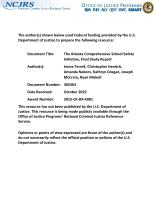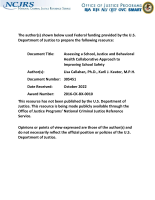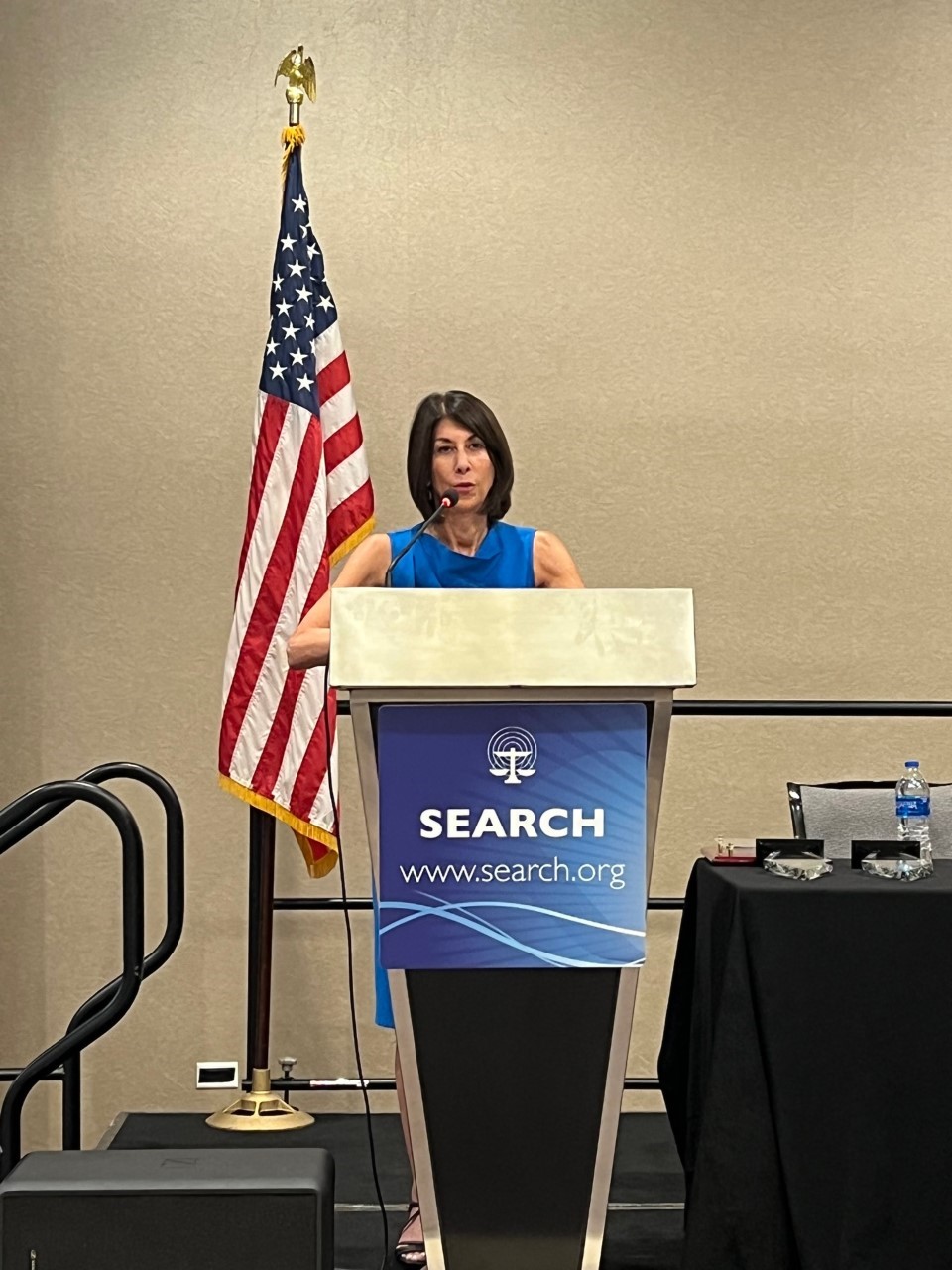Mental health
The Atlanta Comprehensive School Safety Initiative, Final Study Report
Assessing a School Justice and Behavioral Health Collaborative Approach to Improving School Safety
Evaluation of the Bronx-Osborne Gun Avoidance Program (BOGAP)
First Step Act: Review and Revalidation of the Bureau of Prisons Needs Assessment System
Understanding the Criminal Justice and Health Care Needs of Latinx Victims of Hate Crime and Bias Victimization
Evaluation of Harris Center Crisis Call Diversion Program
Integrated Law Enforcement and Mental Health Responses in Tucson: An Impact and Cost Benefit Analysis
Improving Outcomes for Child Sex Trafficking Victims, Phase 2: A Rigorous Outcome Evaluation of Love146’s Long-Term Services (LTS) Program
Prevalence Estimation of Co-occurring Mental Health and Substance Use Disorders in Juvenile Facilities
Assessing the impact of treatment quality, matching and dosage on juvenile justice outcomes among a statewide sample of youth with co-occurring substance abuse and mental health disorders
Comparison of Universal Mental Health Screening and Traditional School Identification Methods for Multi-Tiered Intervention Planning
The Impact of School Police Reform on Student Safety and School Experiences
Experiences of Victimization Among Latinos: Studies Confirm Significant Victim Mental Health Impact and Mistrust of Authorities
The Missouri Prevention Center: A Multidisciplinary Approach to Reducing the Societal Prevalence and Burden of Youth Mental Health Problems
The School Responder Model (SRM): Virtual Toolbox
Practices and Policies Around Wellness: Insights From the Internet Crimes Against Children Task Force Network
An Evaluation of Youth Mental Health First Aid Training in School Settings
Mass Attacks Defense Toolkit: Preventing Mass Attacks, Saving Lives
The North Carolina Youth Violence Prevention Center: Using a Multifaceted, Ecological Approach to Reduce Youth Violence in Impoverished, Rural Areas
The Science of School Safety
The Science of School Safety
Gun violence may be the most discussed topic surrounding school safety, but it is by no means the only one. Bullying, school climate, and mental health affect students across the country, and are some of the many other issues that NIJ researches. Mary Poulin Carlton, an NIJ social science analyst, joins host Paul Haskins to discuss these and other important school safety issues.
Reading and Resources from the National Institute of Justice:







